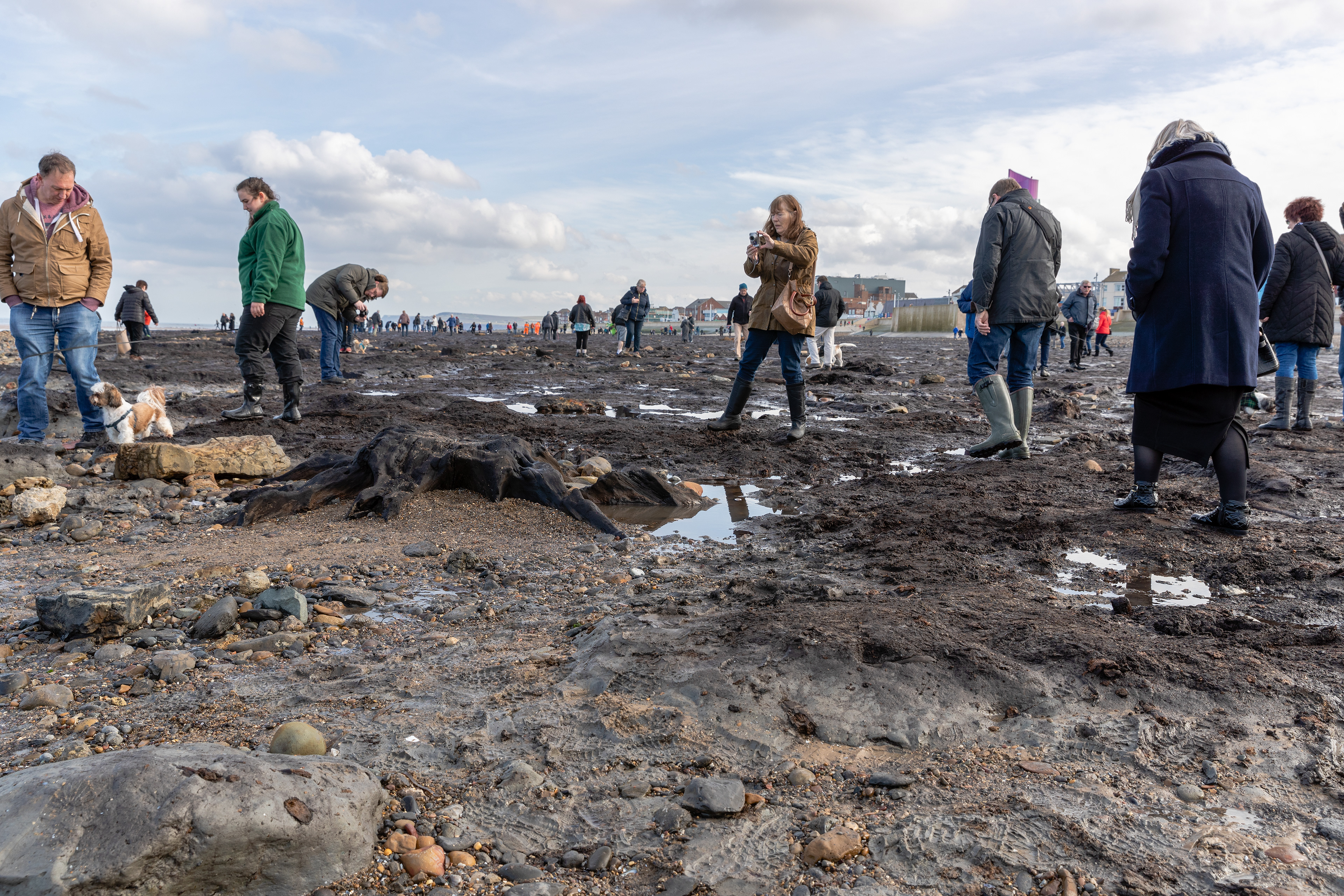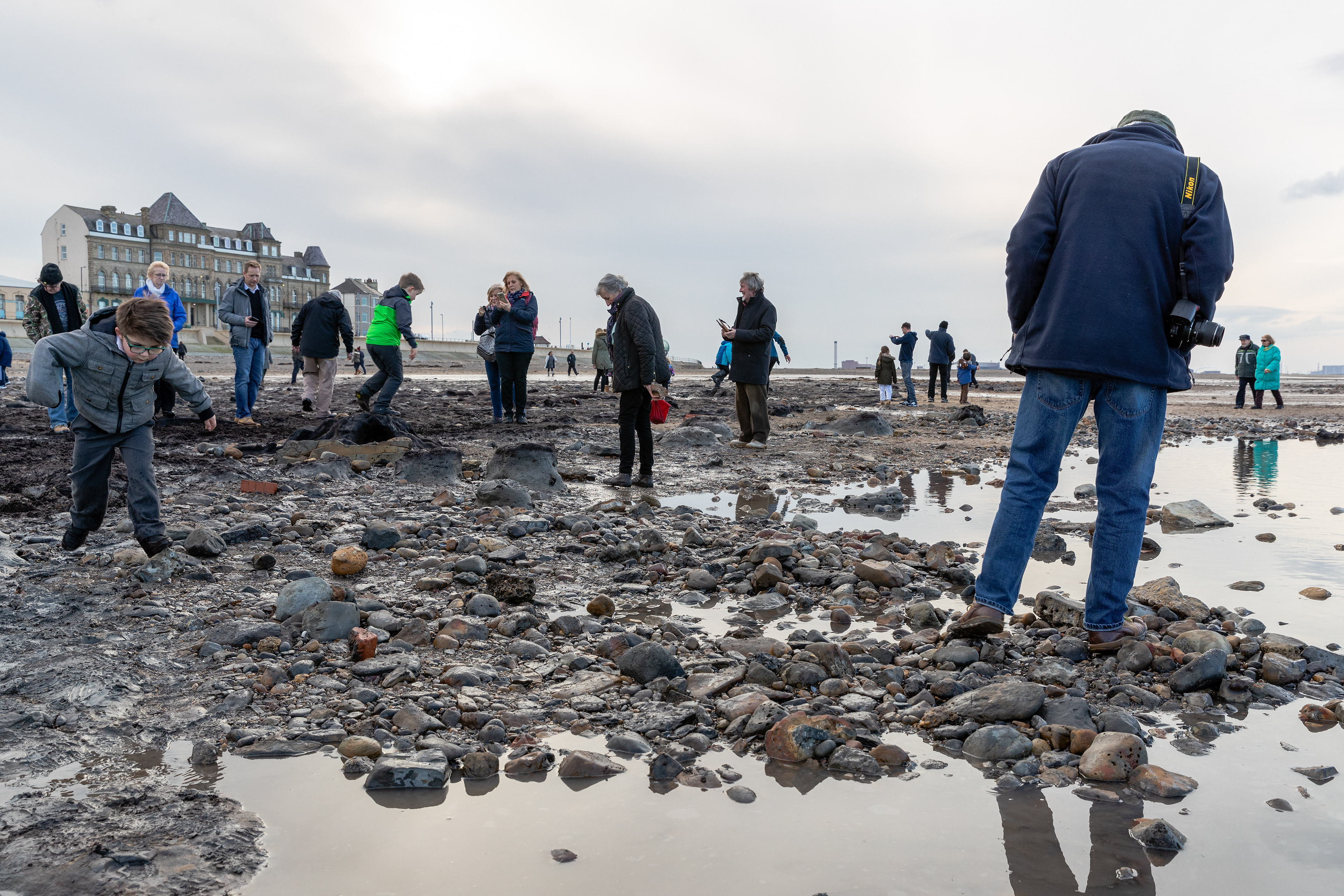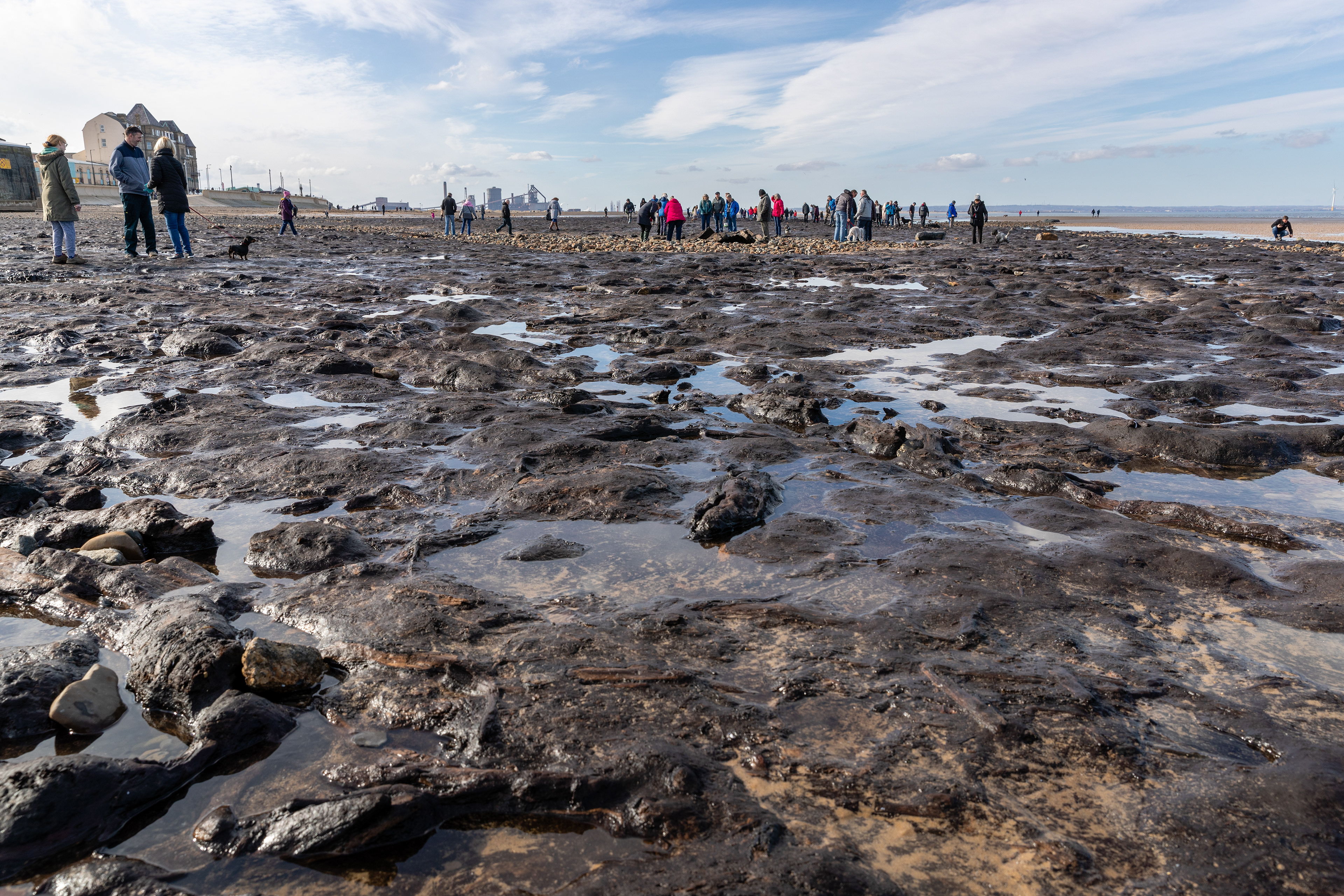A Woman Walks Among the Fallen Trees of an Uncovered Prehistoric Forest. Redcar Beach, North Yorkshire, England. 2018.
Tourists Flock to an Uncovered Prehistoric Forest. Redcar, North Yorkshire, England. 2018.


A Prehistoric Tree Stump Exposed by Storm Emma. Redcar Beach, North Yorkshire, England. 2018.
A Fallen Prehistoric Tree Preserved in Anaerobic Conditions. Redcar Beach, North Yorkshire, England. 2018.
Footprints Surround a Prehistoric Tree Stump. Redcar Beach, North Yorkshire, England. 2018.
Tourists Study the Fallen Trees and Stumps of a Prehistoric Forest. Redcar Beach, North Yorkshire, England. 2018.
Pointing at the Past. Redcar Beach, North Yorkshire, England. 2018.
A Child Looks Out at a Landmass Named ‘Doggerland’, Which Once Connected the British Isles to Continental Europe. Redcar, North Yorkshire, England. 2018.


The Tide Begins To Cover the Remains of Doggerland; Postglacial Climate Change Would Eventually Submerge the Landscape, Creating the British Isles. Redcar Beach, North Yorkshire, England. 2018.